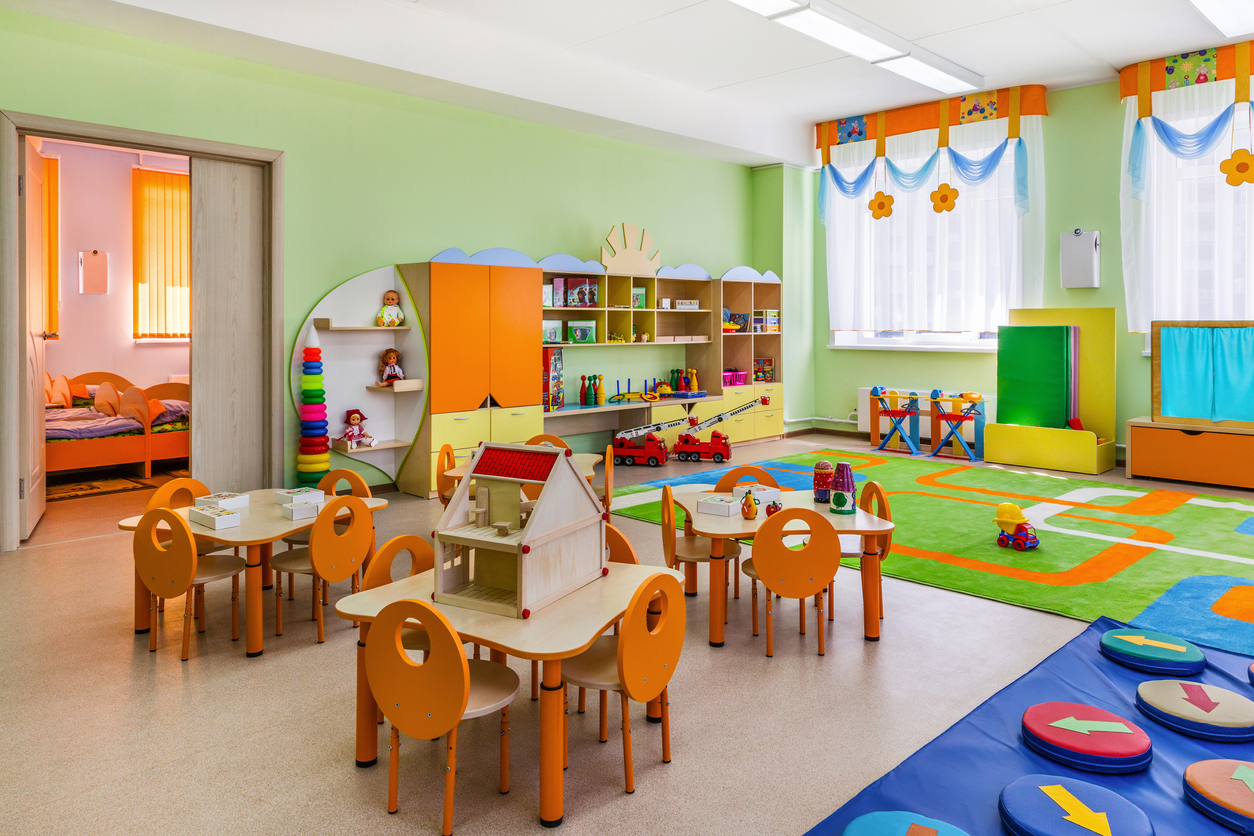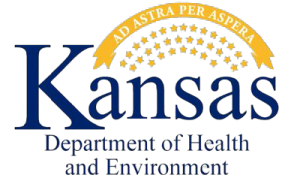
Choosing child care is one of the most important decisions you will make for your child. Since 1992, Child Care Aware of Kansas has helped families just like yours, understand how to determine the best child care setting for their child. Our statewide network of child care resource and referral (CCR&Rs) agencies works together to connect families across Kansas to child care in their area.
Call 877-678-2548 to speak with one of our knowledgeable Resource Specialist. They will assist you in your child care search — providing you with a list of licensed child care providers in your area, as well as personalized information that will help you choose the right child care provider for your family. You can also search for child care online. We encourage you to contact the Resource Center if your online search does not trigger any results.
Know your options. Start looking for child care as soon as you can. Finding the right child care setting may take some time.
Consider your preferences. For example, think about the individual learning style of your child (does he/she prefer small groups or large groups?), your family needs, the location and the hours of care.
Visit at least three programs before making your final decision. Interview prospective providers and talk to everyone who will be involved in your child’s care. Plan to spend 30 to 60 minutes at each interview. Take your child with you to see if the program is a good fit for him/her.
Think about what you saw at each visit. Refer to your notes and trust your instincts. Pay attention to any uneasy feelings you may have.

You and your child care provider are partners now. You have the right to visit your child’s program any time your child is there. Making such visits are one way to monitor the quality of care your child is receiving.
The interview and selection process is unique for everyone. Use these tips to help you make the best decision for your family and establish a lasting partnership with your child care provider.
Look for a posted Kansas Department of Health and Environment (KDHE) state license which will show the capacity of the facility based on space and the ages of children in care. See below for more details on child care licensing. Check a provider’s compliance and license status online here.
Poisons, medications, weapons, and other dangerous substances should be locked up. All children and adults in the facility should wash their hands frequently. Look for working smoke detectors and that electrical outlets are covered. There should be no smoking during business hours. Ask to see the provider’s most current CPR and First Aid certificate.
It is important that the level of supervision is appropriate to the age group and their needs. In general, younger children need to be more closely supervised and will require a higher adult/child ratio.
Children need to be actively supervised at all times, even when the children are sleeping. Ask how often children are visually checked while napping, and where the infants sleep.
A daily schedule with a balance of indoor and outdoor, active and quiet, and age-appropriate activities should be followed. There should be enough games, blocks, dress-up clothes, books, etc., to allow children to select activities that interest them. The outdoor area should be safe, with space to play freely. Ask the provider for a tour of the indoor and outdoor space used for play and learning activities.
The facility should allow you to visit your child at any time and should be accepting of your family’s cultural values. Ask the provider about family nights, conferences, or volunteering opportunities that are available.
All facilities that provide child care are licensed by the Kansas Department of Health and Environment (KDHE). KDHE administers the child care licensing laws and issues licenses for child care facilities to protect the health, safety, and welfare of children receiving care away from home.
The Kansas Department of Health and Environment (KDHE) supports continuity of operations for licensed child care facilities. Visit their website for child care licensing requirements and more.

Kansas, like any other state, offers a range of child care options, including child care centers, in-home family child care, and preschools. Making an informed choice ensures that parents provide their children with a nurturing environment where they can thrive, while supporting the schedules of the family.
Visit KDHE’s website and childcareinkansas.com for more details and rations explanations.
Child care centers often offer more options than in-home providers, with structured environments, age-specific activities, and set hours. They include Headstart programs and preschools.
Did you know… people in the process of becoming licensed as a family child care provider may be issued a temporary permit, valid for 90 days. A person with a temporary permit will have attended an orientation session, submitted their written application to KDHE, and passed the DCF and KBI registry check. They may not have had their inspection visit and may still have corrections to complete before receiving a permanent license. A provider with a temporary license must follow all of the same regulations, including license capacity.
Home-based child care is typically offered in the provider’s home, with flexible scheduling and age ranges. Providers must follow state and federal guidelines and offer daily activities.
School-age programs serve k-6 graders, typically before/after school and during summer break. Often run by schools or community partners to provide care outside the traditional school year.
Research clearly shows that education and specialized training in early childhood practice positively impacts the quality of an early learning program. Ask about the provider’s credentials.
What Families Need to Know
Links to Quality strives to increase access of quality child care for all Kansas families. The purpose is to design and implement a statewide system that recognizes continuous quality efforts of all Child Care Educators (Providers).
Links to Quality (L2Q) services are no-cost to providers, voluntary, and available to all licensed Early Childhood Programs in Kansas. These programs can find information about L2Q online at https://ks.childcareaware.org/l2q/.
Badges – What Do They Mean

Child care educators can obtain badges by completing Links. These badges (above) recognize child care educator’s strengths and achievement that support ongoing quality improvement. Think of it as earning awards for going above and beyond common standards in different areas of child care. Child care educators can earn these badges, by investing extra time and effort into their program and completing certain tasks or learning new skills.
Since this program is new, not all providers may have badges yet. While you’re welcome to ask your educator if they are participating in L2Q, please note that earning badges takes time. Check out these ways to support your provider as they work towards achieving their L2Q goals and learn more about badges here.
The National Child Development Associate (CDA) credential qualifies providers who work with children birth to age five. Child care providers who earn a CDA complete:
Accreditation indicates that a program meets nationally recognized guidelines for high-quality early care and education. Child care centers may be accredited by the National Association for the Education of Young Children
(NAEYC). Family child care providers may be accredited through the National Association for Family Child Care (NAFCC). School-age programs may be accredited through the National Afterschool Association (NAA).
Determine Your Budget
Your budget will play a big part in the final decision. Your weekly or monthly child care cost will vary depending on the type of child care you choose, your specific provider and your child’s age.
These resources from Child Care Aware of America to help you as you’re budgeting for child care costs.
This tax advantaged financial account allows an employee to set aside earnings to pay for care. Money deducted from an employee’s pay into an FSA is not subject to payroll taxes, resulting in substantial payroll tax savings.
You may qualify for child care subsidy assistance if you are an Active Duty military family or Active Duty National Guard (AGR) serving under Title 10 or Title 32, United States Code (U.S.C.). Visit childcareaware.org for information on how to apply.
Did you know: If you receive Child Care Assistance from the Kansas Department for Children and Families, certain relatives may be eligible to provide home-based care for your children.
1. Keep all scheduled appointments when meeting with child care providers. If you need to cancel, call.
2. References should be provided upon request. It is your responsibility to interview the references.
3. Make sure you read and agree to the provider’s contract and policies. Keep a copy for your records. If you feel that the child care provider is not adhering to their own policies, mention it. Small issues can quickly become big issues.
4. Pay on time. Your child care provider is operating a business and depends on you.
5. You will need the provider’s tax I.D. number (W-10 form) for taxes. It is the parent’s responsibility to ask for this information.
6. Pick up your child on time. If an emergency prevents you from being on time, call.
7. Plan to make unannounced visits to your child at the facility often to see what goes on throughout the day.
8. Communicate openly with your provider about your child and his/her progress, as well as any concerns you may have.
9. Find ways to get involved. Working together is key to making the partnership work.
10. Talk to or read your child(ren)’s cues to know if they are happy!
Your donation to Child Care Aware of Kansas is an investment in our state's future. Join our efforts towards ensuring accessible, affordable, high-quality child care for every child.
DONATE